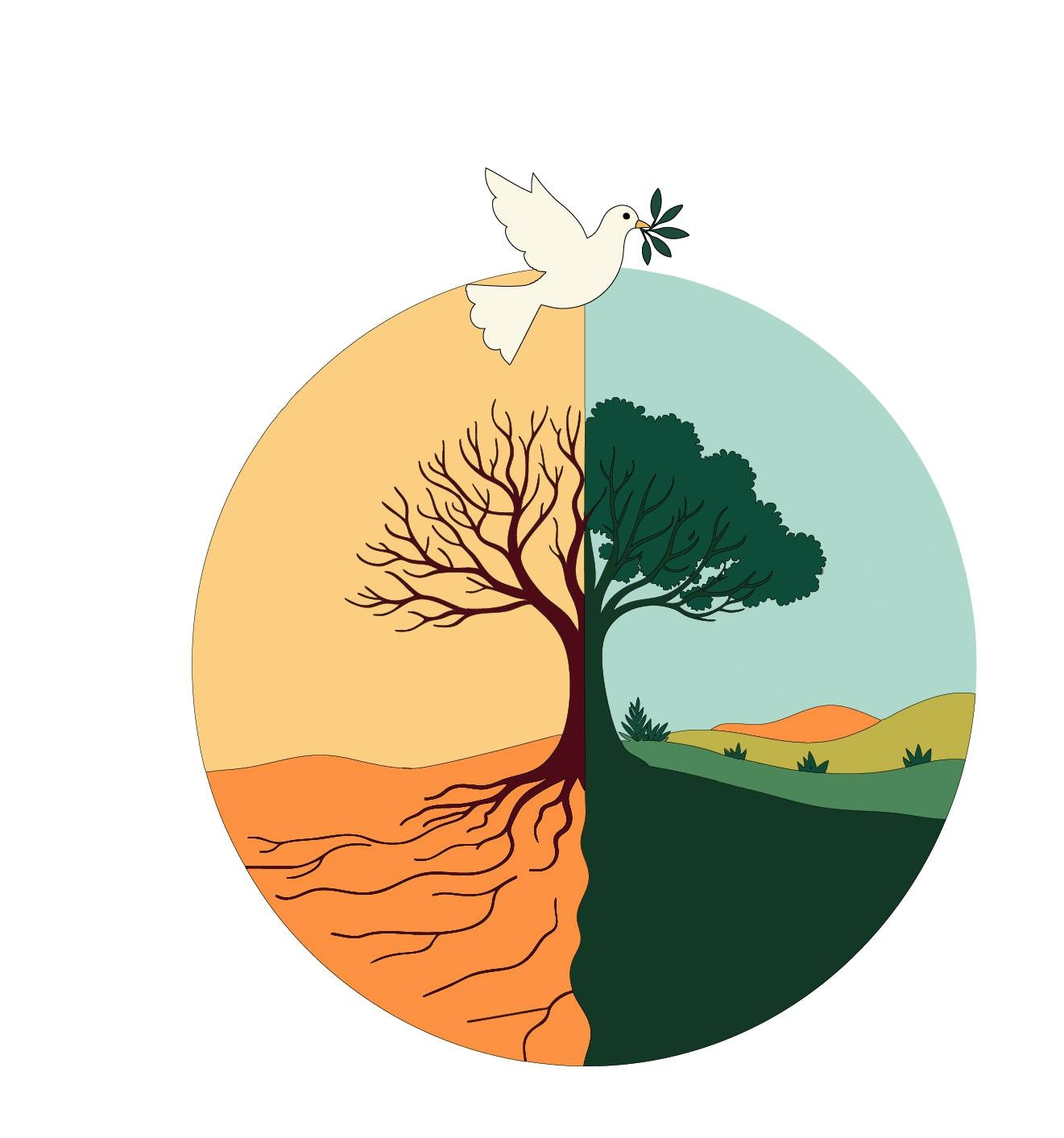Each Sunday, during the Season of Creation (September 1-October 4), I have focused on an aspect of Isaiah 32:14-18.
14 For the palace will be forsaken,the populous city deserted;the hill and the watchtowerwill become dens forever,the joy of wild asses,a pasture for flocks;15 until a spirit from on high is poured out on us,and the wilderness becomes a fruitful field,and the fruitful field is deemed a forest.
16 Then justice will dwell in the wildernessand righteousness abide in the fruitful field.17 The effect of righteousness will be peace,and the result of righteousness, quietness and trust forever.18 My people will abide in a peaceful habitation,in secure dwellings, and in quiet resting places.
In the first week, I focused on the context of Isaiah exhorting women in Jerusalem to grieve the destruction of the land, and I connected this exhortation to climate grief, grieving the destruction of the environment today.
In the second week, I turned to the middle of the passage, “until a spirit from on high is poured out on us,” and I reflected on our spiritual transformation in relationship with the land.
In this third week, I plan to dwell with the final several lines of the passage.
Peace/shalom is an immensely important word/concept/reality in the Bible.
The Hebrew idea of shalom encompasses peace and wholeness for everyone, people, plants, animals, and land. Shalom means wholeness for everyone involved.
Throughout the unfolding of Israel’s life in the Old Testament, they developed practices and policies of justice involving vineyards.
This included the treatment of one another’s vineyards. If one neighbor trampled on another neighbor’s vineyard, that trampling neighbor needed to pay retribution.[1]
Moreover, in order to take care of everyone in the community, those who grew vineyards needed to ensure that those who were not landowners were cared for. So, they were instructed to leave grapes on the vines in order for those without a vineyard to enjoy the fruit as well.[2]
When the Israelite community experienced shalom, they would literally, together, taste the grapes and celebrate with wine from their vineyards.[3] A literal healthy vine shows us what a literal healthy community of relationships looks like with each other, the land, and God.
“Religions,” Ivone Gebara says, “have an undeniable social role in helping us develop the sensibilities we need in order to love the earth and the human community in the light of the indissoluble communion among all things.”[4]
I look forward to spending more time considering what “peace” and “peaceful habitations” might look like today.
(Pictured: the symbol for Season of Creation 2025)
[1] Exodus 22:5.
[2] Leviticus 19:10.
[3] 1 Kings 4:25.
[4] Ivone Gebara, Longing for Running Water: Ecofeminism and Liberation, 211-12.



Amen Sam, IF only we as a society cared more for our neighbors instead of always being self centered. And cared more for our environment. Thanks for the inspiration.
I think that should be "restitution" (compensation by the offender for damage done) rather than "retribution" (penalty inflicted upon the offender because of damage done).